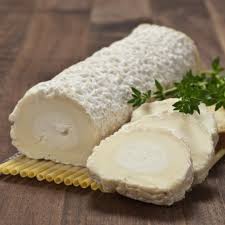Food trends come and go, but goat cheese benefits vs cow milk cheese seem to always be a popular topic of discussion, especially amongst certain diet faddists. Goat’s milk is known for having less lactose than traditional cow’s milk, helping to reduce the bloat and inflammation often associated with dairy products. Another theory is that it is easier to digest because its biochemical composition is similar to the breast milk of humans.
In any case, there are some real nutritional goat cheese benefits, and a variety of reasons why goat cheese may actually win out in the perennial goat cheese versus cow cheese battle.

Goat Milk vs. Cow’s Milk Cheese: The Top 5 Goat Cheese Benefits
Goat Cheese Benefit #1: Lower in Fat Calories
Most cow’s milk typically contains 100 calories and 10 grams of fat per ounce. (To put this in perspective: an ounce of cheese is roughly the same size as the thumb of an adult male.) By contrast, goat cheese only has 80 calories per 6 grams. If you break that down into percentages: each serving of cow’s milk cheese has 10 percent fat and goat cheese only contains 7.5 percent. The fat in goat cheese is lower than cow’s milk cheese! Think about how many ounces of cheese you’re really eating the next time you spread it on your bagel, and you’ll see the tremendous potential in calorie savings.
Goat Cheese Benefit #2: More Protein AND Calcium
While cow’s milk cheese has 8.1 grams of protein, goat’s milk boasts a whopping 8.7. There are also 40 grams more calcium per serving in goat’s milk cheese, which makes it a better option for menstruating and breastfeeding women. Also, as we age, we need more protein to build more muscle density and if you’re a fan of cheese, why not eat the kind that has more of the good stuff (protein) and less of the bad (calories from saturated fat)?
Goat Cheese Benefit #3: Yes, it Has Less Lactose
The science shows that those of us who have a hard time digesting both lactose and casein do not react as strongly to goat milk and goat cheeses. Why? It has less lactose (making it easier to digest) and lower levels of the protein found in dairy (Alpha S1 casein), which is responsible for most allergic reactions. Of course, if your doctor has told you that you are dairy intolerant or you have a known allergy, check with him or her first, but it may be that goat cheese could be a real dairy alternative for many allergy sufferers.
Goat Cheese Benefit #4: NUTRITION!
Goat cheese has more vitamin B6 — as in 25 percent more — than cow’s milk. It also has 47 percent more vitamin A, and 134 percent more potassium. This means that each precious ounce of goat cheese has overall more health benefits than soft or hard cow’s milk cheeses.
Goat Cheese Benefit #5: Less Cholesterol
You will get at least 25mg of cholesterol per serving of cheddar cheese. While this is certainly a trace amount (an ounce of beef has roughly 25 grams), it’s heartening (see what we did there) to know that goat cheese has ZERO grams of cholesterol per serving.
It’s clear that goat cheese benefits outstrip cow’s milk in many categories. It’s also a bit easier on the planet to manufacture, and requires less up front treatment to produce cheese.

